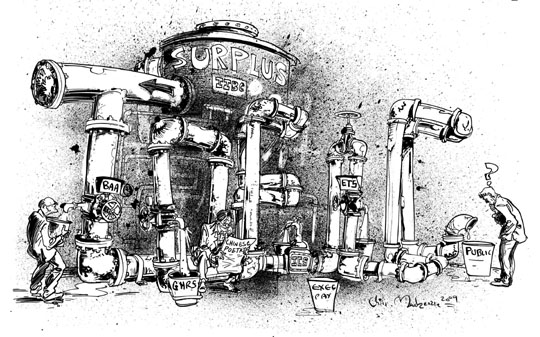In a country of test-takers, the Test of English for International Communication has become one of Japan's most recognized exams. In 2008, people in Japan paid ¥4,040 — or slightly less if their company or school paid a ¥100,000 membership fee — to take the TOEIC Institutional Program (IP) at their company or school 940,000 times. A further 778,000 test-takers paid ¥6,615 to take the TOEIC Secure Program, offered at official test centers at fixed times. Despite the test's fame and the large sums involved, where the approximately ¥8-9 billion in test-taker fees end up remains relatively unknown.
People paid these fees to the Institute for International Business Communication, a nonprofit public-interest corporation with 156 employees that operates under the authority of the Ministry of Economy, Trade and Industry.
One of the IIBC's biggest expenses is paying royalties to Educational Testing Service, the American testing organization that writes and owns the content of the TOEIC tests. No one working for IIBC or ETS would reveal the royalty fee for a single exam, but in fiscal 2007 testing royalties totaled a little over ¥800 million. For fiscal 2008, the IIBC budgeted to spend almost double that amount — over ¥1.5 billion — on royalties. IIBC spokespeople declined to provide an explanation for the sudden increase.



















With your current subscription plan you can comment on stories. However, before writing your first comment, please create a display name in the Profile section of your subscriber account page.